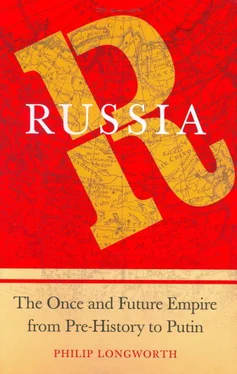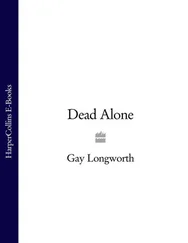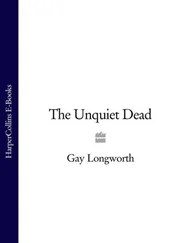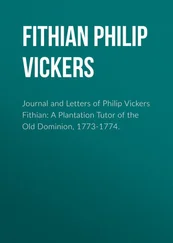preparation, 11; hill (gorodishche), 24;
hunter-gatherers, 7-8, 1 0 — n ; Iron
Age, 12-13; and language, 14-15;
patriarchal tendencies, 12; religious
beliefs, 12; and river trade, 24-5; and
serfdom, 129-30; Stone Age, 5, 6, 8,
9—10; swidden agriculture, 13—14;
Tnpolye type, 10; (un)conscious
adaptations, 8; Viking, 23, 24; sec also
economy
Sevastopol, 179, 206, 209, 210, 257
Seven Years War (1756-63), 168, 178
Severiane (tribal association), 22
Seymour, H.D, 209
Shahin Girey, Crimean Khan, 178
Shamyl (imam; Murid leader of
insurrection), 203, 207
Shanghai Forum, 326
Shaposhnikov, Marshal (Chief of Staff),
255
Shatalin, Stanislav, 294
Shchelkalov, Andrei and Vasilii, 109, 111
Shcherbatov, Prince Mikhail, 79
Shchigolev, Artemii, 144—5
Shevkal (shamkal of Tarku), 112
Shostakovich, Dmitrii, 198; Cheriomushki, 272
Shuiskii, Prince Andrei, 90
Shuiskii, Vasilii, Boyar, then Tatar see
Vasilii IV
Siberia, Siberians, 5, 66, 69, 166, 197, 244, 251, 256, 316; administration of, l22 160-1, 176-7; communications in, 223; conquest of, 97, 129, 132—3; difficulties of adjustment/absorption, 280; effect of climate on, 6; illness in, 176; introduction of law in, 198-9; mapping of, 133; mineral wealth of, 279-80; native peoples of, 134; population movements into, 130; railways in, 223-5; a n d religious conversion, 135; settlement programmes for, 130-1; strategic importance of, 133; strategic
significance of, 96, 110
Siberia Office, 132
Sigismund, King of Poland, 122, 123
Silk Road, 158
Silvestr (monk), 91
Simeon the Proud, Grand Prince 51
Sinkiang, 263
Sinope, 210
Sisak, Prince, 92
Six-Day War (1967), 278
Skrynnikov, Ruslan, 111
Skuratov (post-communist prosecutorgeneral), 312
Skyger, Lieut.-Col., 137
Slansky, Rudolf, 267
slaves, 23, 30, 33, 42, 93, 173, 200, 202
Slavonic Benevolent Committee, 221
Slavs, 6, 10, 15, 41, 197, 220
Slovakia, Slovaks, 265, 284
Slovenia, Slovenes, 20, 220, 294
Smolensk, 24, 33 52, 55, 62, 84, 110 ,123, 124, 128, 129, 136, 141, 144, 194
Sobieski, Jan, King of Poland, 147
Social Democrats, 237
‘Socialism in One Country’, 239
Sofia (daughter of Tsar Alexis; regent during minority of Ivan V and Peter I), 147, 148, 151
Sofia (city), 222
Sokhma river, 48
Sokolovskii, Marshal V.D., 257
Solari, Pietro Antonio, 82
Solomonia, Grand Princess, 85
Soloviev, Vladimir, 112
Solvychegodsk, 96, 124
Solzhenitsyn, Alexander, 283
South Vietnam, 278
South-East Asia Treaty Organization (SEATO), 269
Soviet Academy of Science, 8
Soviet Union, 2, 320—1; 500-day regeneration plan for, 294—5; acquisition of territories, 261; apparent stability of, 283-4; Autonomous Provinces, 245; Autonomous Republics, 244-5; censorship, propaganda and public relations in, 150, 252; collapse of, 281, 324; collectivization programmes, 252-3, 268-9, 274-5; constitution for, 244-6; continuities with old regime, 238, 239; and demobilization, 264-5; demographic/economic changes 271—4; deportations in, 256, 271; and detente, 278-9; deteriorating standard of living in, 292; disastrous aftermath of collapse, 301-2; dissidents in, 283; easing of foreign and domestic attitudes, 268; and East-West relations, 286—7; economic problems in, 240—2; enlightened attitudes of, 245—6; events leading to collapse of, 282-6; as a Federation of National Republics, 242—6; final disintegration of, 298—300; and freedom for satellite countries, 290—6; Gorbachev reforms in, 284—8; increasing influence of, 270-1; introduction of democratic practices, 287; judicious use of repression/concession, 269; labour camps in, 253; management of, 271—2; military disasters/victories, 255-60; mineral wealth of, 285; nationalist sentiments in, 273-4; Nazi-Soviet Pact, 254, 261, 292; New Economic Policy, 242, 246; new security agency in, 239—40; nuclear weapons in, 269, 277-8; political coup in, 296-8; and political/constitutional reform, 289; and post-war territorial divisions, 262-3; presence/influence in Eastern Europe, 265—7, 274-7; prestige/world influence, 261—2, 280—1; reasons for collapse, 298-300; and removal of conservative elements, 290; science/technology in, 279—80; social/economic crisis in, 246-8; space missions, 269, 270; succession of disasters in, 286—8; trade agreements, 269; trials, executions and purges in, 252, 267; urban/industrial building projects, 250—2; uskorenie, glasnost and perestroika in, 285, 287, 288; war casualties, 264; Western attempts to curtail, 269; withdrawal of troops and non-interference policies, 288—9
Spafarius (Romanian in Tsar’s service), 148
Spain, 6, 171
Speranskii, Mikhail, 198
Spiridonov, Admiral, 172
Sprengtporten, Colonel G.M., 192
Stakhanov (a miner), 250
Stalin, Joseph, 246, 261, 271, 273, 321; adherence to post-war agreements, 264; character of, 252—3; Communist ideology, 264; death of, 267; and Georgian independence, 244; and issue of Declaration of Rights of the Peoples of Russia, 242; and management of war, 255, 257, 258; patriotic speech by, 247—8; and the ‘percentage agreement’, 263; popularity of, 268; and Nazi-Soviet pact, 254; and war against Japan, 264
Stalingrad, 110; battle of, 257—60; see also
Tsaritsyn
Star Wars, 286, 298
Stefan, abbot, 59
Stephen of Novgorod, 50, 57—8
Stiglitz, J., 311
Stolypin, Petr, Premier, 231-2, 272
Strabo, 17
Strategic Arms Limitation, 277
Strategic Defense Initiative (‘Star Wars’), 282
Strobel, Lieut.-Col. van, 137
Stroganov, Grigorii, 96—7, 110 , 173
Stroganov venture, 130
Sungir archaeological site, 5
Sunzha, 180
Suvurov, Generalissimo Aleksandr, 179
Suzdal, 44, 46, 52
Sviatopolk (son of Iziaslav), 42
Sviatoslav the resentful, 27
Sviatoslav (son of laroslav), 41, 42
Sviatoslav (son of Olga/Helen), 37-8
Svoboda, Colonel (later President of Czechoslovakia), 262
Sweden, 1, 4, 49, 55, 79, 98, 108, 122, 142, 143, 146, 188; war with, 152—6, 168
Syr-Darya river, 160, 173, 209
Tabriz, 204
Taiwan, 326
Tajikistan, 278, 325
Tajiks, 217
Taliban, 308
Tallin, 104
Talyanky, 10, 18
Taman (Tmutorakhan), 41
Tamara, Queen of Georgia, 44
Tamerlane the Great, 63
Tannenberg, 234
Tara, 110
Tashkent, 160, 173, 209, 216, 222
Tatars, 46-7, 48, 52, 70, 78, 96, 140, 146, 158, 164, 176, 187, 199, 216, 245, 248, 319; alliance with Ivan the Great, 79; arrival of, 46—7; attacks on Moscow, 62-3, 66; baskak (officials), 49; defeats of, 57, 92; exploitation of Russian assets by, 49—50; imposition of power by, 49; relationship with princes, 49—50, 53—5; religious toleration of, 51; uprising against, 54; see also Mongols
Tatary, 273
Tavasarans, 94
Tbilisi, 191, 205, 223, 292, 325
Tehran (1943), 262
Temriuk (Kabardinian prince), 93
Terek Cossacks, 203, 243
Terek river, 93, 94, 191, 203, 257
Terka, 93, 112
Teutonic Knights, 49
Theodora, Empress, 34
‘Third Rome’, myth of the, 1, 85
Third World, 261, 280
Thirteen Years War, 138
Tibet, 145, 188, 326
Tien Shan mountains, 222
Tiflis see Tbilisi
Tilsit, 190, 254
Time of Troubles (era of confusion concluding Muscovite period), 108-27, 129, 144, 323
Tiumen, no
Tiutchev EL, 215
Tobolsk, no
Tokhtamysh (Tatar leader), 60
Читать дальше





![Stephan Orth - Behind Putin's Curtain - Friendships and Misadventures Inside Russia [aka Couchsurfing in Russia]](/books/415210/stephan-orth-behind-putin-s-curtain-friendships-a-thumb.webp)





